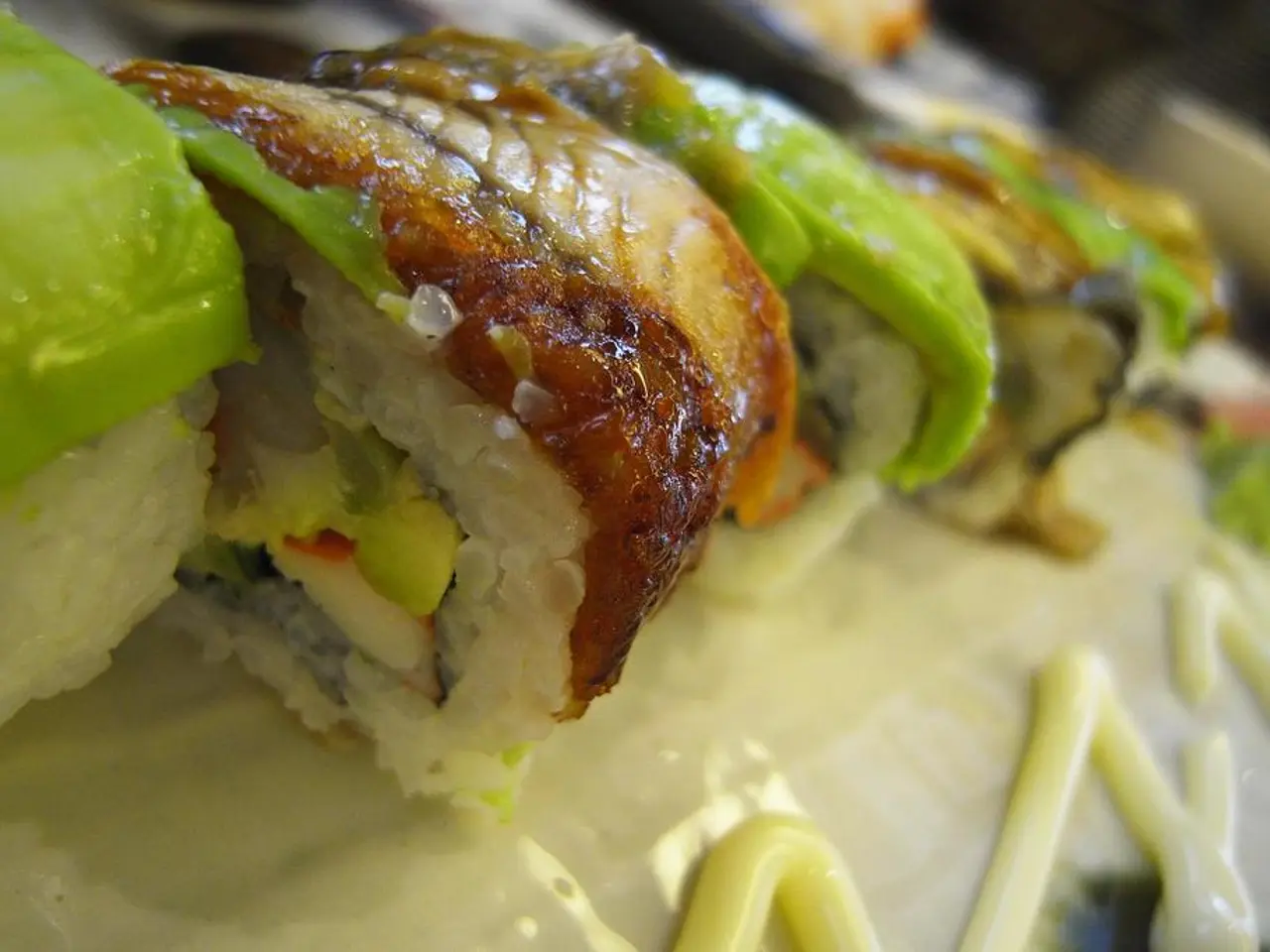Alternative Meal Choices for the Military Diet: Examples, Plans, and Further Details
The Military Diet, also known by various names such as the Navy Diet, Army Diet, or the 3-day Diet, has gained popularity for its promise of rapid weight loss. However, it's important to delve deeper into its claims and understand its implications.
The Military Diet is a very low-calorie diet (VLCD) that lasts for three days, followed by four days off. The diet plan includes foods like bananas, saltine crackers, hot dogs, and vanilla ice cream. But is this diet a viable long-term weight loss solution?
Research suggests otherwise. While short-term calorie restriction diets like the Military Diet might produce temporary weight loss, sustained weight loss depends more on consistent lifestyle changes, calorie reduction adherence, and physical activity. Long-term weight loss success generally requires comprehensive behavioral modifications incorporating diet and exercise.
Current obesity management guidelines emphasize lifestyle interventions over fad or very-low-calorie diets because many such diets lack evidence for sustainable results. The National Weight Control Registry found that sustained 10% body weight loss over 10 years is achievable, but did not identify a specific diet as superior for this maintenance. Similarly, adherence to any diet is more important than the diet type.
No scientific literature or clinical trials support the Military Diet's long-term efficacy. Evidence-based weight loss treatments, such as medically supervised medications combined with lifestyle modifications, show more promise for effective weight loss and maintenance. Military Health System experts also emphasize lifestyle changes first and careful clinical oversight for weight management rather than relying on quick-fix diets.
Despite the lack of long-term evidence, the Military Diet may result in weight loss for some individuals. However, it's crucial to note that this diet is very low in calories and may not be suitable for everyone. It's always recommended to consult a doctor before starting the diet.
For those following the Military Diet, there are several food substitution options available. Almond milk, flavored or plain, can be a non-dairy substitute for vanilla ice cream. Turkey hot dogs can be a substitute for hot dogs, and grilled sushi-grade tuna, lean meat such as chicken, cottage cheese, tofu, almonds, avocado, chickpeas or hummus, and other alternatives can be used instead of canned tuna.
Other substitutes include fruit-flavored yogurt, dairy-free ice cream, soy, hemp, or almond milk, hummus, Greek yogurt, plain ricotta cheese, cheddar cheese, an egg, ham, and various alternatives for cottage cheese. Rice cakes, other types of crackers, quinoa, couscous, sunflower seeds, whole grain cereal, protein bar, yogurt and flaxseed, tortilla, and other substitutes can be used instead of toast or saltine crackers.
It's important to remember that any substitutions should maintain the same calorie amount as the original food in the Military Diet. Allergic individuals or those who prefer other foods can also make substitutions to suit their preferences.
However, it's essential to approach the Military Diet with caution. The long-term health effects are unknown, and the diet is not scientifically proven. It's always best to prioritize sustainable lifestyle changes and medical supervision for weight management. Always speak with a doctor before starting a new diet, especially one that involves restricting calories.
- Ankylosing spondylitis, a type of chronic inflammatory arthritis, might be exacerbated by a sudden change in diet, such as the Military Diet, due to its low-calorie content.
- The Military Diet, despite its promise, does not have a predictive impact on cancer, diabetes, asthma, eczema, multiple sclerosis, or crohns disease.
- Science and health-and-wellness professionals advocate for comprehensive changes in diet and exercise, rather than relying on short-term solutions like the Military Diet, for sustainable weight loss and management.
- In the realm of nutrition, a balanced diet, combined with proper weight-management strategies, plays a crucial role in combating diseases like diabetes and cancer.
- Adhering to specific diet types, like the Military Diet, might not be as important as maintaining a consistent and healthy lifestyle approach to weight management and overall health.
- In the health-and-wellness community, evidence-based treatments, including medically supervised weight loss programs, are favored over hastily promoted diets like the Military Diet.
- AQ, a research group focused on behavioral sciences and nutrition, has yet to conduct studies on the predictive impact of the Military Diet on long-term health outcomes.
- Sclerosis, a term often associated with multiple sclerosis, does not occur from consuming certain foods, but rather as a result of an immune system dysfunction.
- The Military Diet, though promising rapid weight loss, should be approached with caution due to its lack of proven long-term efficacy and potential health risks, particularly for individuals with specific health conditions like diabetes and asthma.




